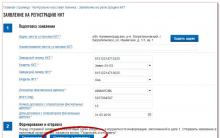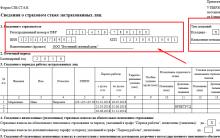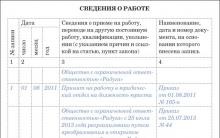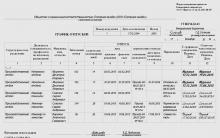The current regulations of the Russian Federation provide for various types of vacations.
This is due to the difference in the specifics of the activities of employees of various structures. Vacations are granted taking into account working conditions, the presence of harmful or dangerous factors, as well as the territory in which a person carries out his professional activities.
In general, labor legislation divides vacation into two types - basic and additional.
Basic annual leave is given to all employees, regardless of their position and field of activity. Its duration is twenty-eight actual days. This is a set minimum that must be provided to a person each year. It should be noted that in practice the specific duration is calculated in proportion to the hours worked. The prescribed mandatory rest period must be used for its intended purpose. It cannot be replaced by monetary compensation. Dividing a break into parts or transferring it to another time is allowed only with the consent of the employee.
Additional leave is granted to workers, taking into account the characteristics of work, as well as the status of the employee, for example, a person with disabilities. The duration of such periods depends on the operating conditions. Vacations of this type can be used by a person at a separate time or attached to the main period of rest. They can also be exchanged for cash. This will be possible only in the case of a personal appeal of the worker to the manager.
Social holidays
According to the Labor Code of the Russian Federation, some categories of workers are provided with so-called social leave. The provision of such breaks is due to the presence of objective life circumstances, due to which a person cannot fully fulfill the duties of his position and is forced to temporarily interrupt his activities. Examples of such situations are the expectation and birth of a child, education, good personal and family reasons - marriage, death of a close relative.
For pregnancy and childbirth
According to the general rules, each future woman in labor can temporarily interrupt her work in connection with her maternity leave. Such leave is granted to women before and after the birth of a child, on the basis of a written application, which must be accompanied by a medical report. Its duration depends not only on the number of babies born, but also on possible complications during childbirth, namely:
- Seventy days before the birth of the child. Eighty-four days if more than one baby is expected to be born.
- Seventy days after childbirth, or eighty-six in case of complications during childbirth. One hundred days - if more than one child was born.
The total duration of such a period is calculated in total and does not depend on the number of days that were used by the woman in labor before the birth of the child.
For child care
At the written request of a woman who has given birth, she may temporarily interrupt her professional activities until the child is three years old. Such leave may also be granted to the father of the child or another person who has formal custody. The specified period can be used by a person in full or divided into parts. During this time, you can work at the place of actual residence or on a part-time basis.

This leave is taken into account when calculating the length of service and applying for assistance in connection with leaving for a well-deserved rest.
Educational
Study leave is granted to those employees who combine training with their professional activities. The duration of the break depends on the type of education that the worker receives:
- If a person is studying at a higher educational institution, then fifty days a year should be provided to him.
- Upon receipt of secondary special education - forty days.
- For general basic training, twenty-two days.
Such time is allocated to a person on the basis of a submitted written application, which is accompanied by a certificate-call from an educational institution about the beginning of the next session.
For personal reasons
Each employee can use extra days to solve personal problems. The duration of such breaks is not established by the current regulations and is determined by mutual agreement of the parties.
Nevertheless, categories of workers and cases are defined when such days must be provided to a person without fail:
- Those who took part in the Great Patriotic War - up to thirty-five days a year.
- Those who have the right to take a well-deserved rest, but continue to work - up to fourteen days.
- Parents and spouses of employees of law enforcement and rescue structures, as well as military personnel who passed away while performing their duties, or due to an occupational disease or injury, are entitled to up to fourteen days a year.
- Workers with disabilities are provided with up to sixty days per year.
- In the event of the birth of a child, the wedding of the employee himself or the funeral of a close relative - up to five days.

During these periods, the person retains his position, but the funds are not paid.
Preferential holidays
Preferential leave is granted to certain categories of employees.
The duration of such periods is due to the presence of harmful and dangerous factors in daily activities, the specifics of work, as well as the area in which a person works. During such holidays, a person not only retains his place, but also pays wages.
Categories of workers
In accordance with the requirements of the current legislation, the right to preferential leave is vested in:
- Workers whose activities are associated with dangerous or harmful factors. They are entitled to seven extra days. It should be noted that this is an established minimum, which may be increased by local regulations.
- Workers in the Far North or in areas equated to it. This category is supposed to be twenty-four and sixteen days, respectively.
- Workers whose activities are not limited by time frames, that is, not standardized, as well as those who have not reached the age of majority, are set at least three additional days.
- For the disabled, two days are provided.
- Pedagogical specialists are entitled to from fourteen to twenty-eight days.
- Employees of the Ministry of Internal Affairs - two days.
- Physicians up to fourteen days.
Such periods are provided without fail, regardless of the quality of the work performed.
Travel and baggage allowance
Some employees are entitled to travel allowances to and from the holiday destination, as well as reimbursement for the cost of transporting luggage.
- Northerners. They have the opportunity to compensate for travel expenses in connection with the departure on vacation once every two years.
- Police officers and military personnel. They are reimbursed for their travel expenses once a year.
Not only the cost of the ticket is reimbursed, but also other services provided on transport, such as the use of bedding.
Documentary evidence will be presented travel documents. If a person used a personal car, then receipts for the purchase of fuel at gas stations along the route will serve as proof of expenses. The shortest route to the destination and back is taken into account. Also, these employees will be paid for the carriage of luggage with a total weight of up to thirty kilograms.
The procedure for granting leave
The procedure for granting leave is a procedure consisting of several stages.

First of all, a person must acquire the right to the opportunity to use the break for rest and recovery:
- New hires must have been with the organization for at least six months. Although, by agreement between the parties, leave can be granted earlier. Some workers may go on vacation regardless of seniority - women before or after the birth of a child, persons under eighteen years of age, people who have taken custody of babies up to three months of age.
- For employees in the second and subsequent years, such a right arises at the onset of the time determined by the priority schedule.
- If a person applies for additional time without saving earnings, it is necessary to belong to the privileged category, or have good reasons of a personal nature.
To realize his intention, the employee must send a written application to his supervisor and attach a supporting document to it if it is an additional unpaid leave.
A person must be informed about the start time of the main annual paid leave no later than two weeks before it starts. Although in this case, the appeal to the boss is also relevant, for example, when dividing the vacation into parts or transferring it to another time.
The final stage is the issuance of an order and the payment of financial assistance.
Documenting
According to the current legislation, the documents related to the vacation of a person include:
- The employee's statement.
- Written notice from the manager about the start time of the paid vacation,
- The order of the chief to provide the worker with a break.

It should be noted that the specified documentation is drawn up regardless of the type and reasons for granting a break.
Employee Statement
The employee sends the application to his boss in writing. In addition to basic information, it must indicate the type of break that the person is applying for, its total duration and start time. The appeal must be signed by the employee himself. When making it is allowed to use standard office paper.
You can send an appeal to the head of the company in person, by mail, through a trustee or via the Internet.
Personnel documents
After receiving the employee's application, the manager is obliged to issue and approve the order of the appropriate content. It must reflect the type of vacation, its duration, start and end dates.
It would be correct to indicate the amount of material assistance paid, which must be transferred to the personal bank account of the worker or issued to the latter in his hands no later than three days before the start of the holiday.
It is mandatory to put a note in the timesheet that the person has temporarily interrupted his work.
You will be interested












How to issue a power of attorney to represent the interests of an LLC to an individual?
How to apply for an IP: step by step instructions
Form of power of attorney to receive goods or material assets
The deadline for registering an individual entrepreneur in the tax
Business plan for a law firm: an example with calculations legal support for a business